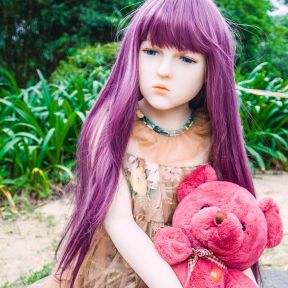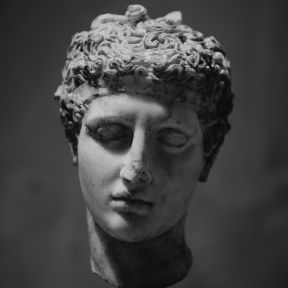
Pedophilia OCD
Pedophilia OCD is marked by intrusive fears of being attracted to children and repetitive compulsions carried out to reduce those fears. People with pedophilia OCD are not attracted to children but rather have a debilitating fear that they might be. This can lead to tremendous fear, shame, distress, and impairment in daily life.
For example, a mother with pedophilia OCD may be extremely fearful that she is attracted to her newborn son, so she refuses to change his diaper, feed him, or even spend time alone with him. OCD often preys on what people value most—their life, their loved ones—and distorts these protective desires into obsessions, such as the fear of contracting a deadly disease, or, in this case, harming a beloved child.
Pedophilia OCD is wholly distinct from pedophilia. People with pedophilic disorder have sexual fantasies, sexual urges, or non-consensual sexual encounters with children under the age of 13. People with pedophilic disorder tend to spend a lot of time with children and shift to inappropriate behavior over time. People with pedophilia OCD, on the other hand, are not attracted to children; due to their deep-seated fears of attraction, they often avoid children altogether.
Pedophilia OCD is not an official diagnosis but rather a term that describes the themes that some people with OCD experience. Similar terms include contamination OCD (a fear of germs, dirt, or viruses) and harm OCD (a fear of harming oneself or others).

OCD has two central components. Obsessions are recurrent, intrusive thoughts, urges, or images that lead to distress and anxiety. Compulsions—repetitive behaviors or mental acts performed in response to obsessions, to neutralize or prevent the feared outcome and the distress it causes.
Obsessions and compulsions are persistent, time-consuming, and lead to distress in important areas of a person’s daily life, such as school, work, or relationships. For example, if a person performs safety compulsions such as checking the locks for hours, they may be late to work and put their job in jeopardy.
Obsessions that characterize pedophilia OCD are fears of being sexually attracted to a child or committing a sexual crime against a child. The corresponding compulsions of pedophilia OCD, research suggests, are as follows:
- Mentally reviewing one’s interactions with children to check for any inappropriate thoughts or actions.
- Repeating certain words, phrases, or visual images multiple times to soothe or distract oneself.
- Checking the body for signs of sexual arousal or attraction to children.
- Seeking reassurance from oneself or others, such as by constantly asking others to verify that one didn’t sexually harm a child in a particular interaction.
- Avoiding spending time with children.
- Avoiding touching or looking at children.
- Avoiding objects or media that remind one of children, such as strollers, playgrounds, or TV shows featuring children.
People may perform compulsions in an effort to reduce the distress elicited by their obsessions. However, compulsions often backfire. They lead the person to spend greater time and energy fixated on their obsessions and reinforce the perceived danger of their thoughts.
There are no measures designed to diagnose pedophilia OCD specifically, but assessments for OCD can help capture the disorder. A mental health professional may administer an OCD questionnaire such as the Yale-Brown Obsessive-Compulsive Disorder Scale, the Obsessive-Compulsive Inventory-Revised, or the Dimensional Obsessive-Compulsive Scale for symptom severity.
These measures contain items that may point to pedophilic-themed obsessions such as items that ask about ‘‘forbidden or improper sexual thoughts” and “unwanted sexual impulses.” A more open-ended interview may also be used to assess the patient and understand their experience. Clinicians will often ask about family history and medical history as well.
Many mental health professionals are unfamiliar with pedophilia OCD, research suggests, so unfortunately it may take time for a patient to receive the correct diagnosis and treatment.
People with pedophilia OCD often experience other forms of intrusive thoughts as well, such as concerns about religious scrupolsity and contamination.

Scientists don’t fully understand what causes OCD or pedophilia OCD, but the disorder likely results from a combination of biological and environmental factors.
OCD has a strong genetic component. Environmental factors that raise the risk of OCD include stressful events or physical and sexual abuse in childhood. In rare cases, OCD has been linked to a viral infection of strep throat in childhood, perhaps due to the body’s immune response. A person’s temperament may also be associated with OCD, such as having stronger negative emotions and behavioral inhibitions.
OCD generally develops in adolescence and early adulthood, according to the DSM-5, and cases only rarely emerge after age 35.
The prevalence of pedophilia-themed OCD is not known. About 2.3 percent of American adults have OCD at some point in their lifetime, according to the National Institute of Mental Health. And research suggests that nearly one-quarter of individuals with OCD experience sexual obsessions at some point. (The true prevalence is probably higher given that some may conceal these obsessions due to feelings of shame or embarrassment). Still, the prevalence of pedophilia OCD specifically remains a mystery.
No. People with pedophilia OCD are terrified of pedophilic desires and often take drastic action to avoid this fear—often to the detriment of themselves or their family. For example, a father with pedophilia OCD may avoid spending time with his child and fall into a deep depression as a result.

A condition like pedophilia OCD can be scary to disclose with other people, even a mental health professional. But treatment is available to help those who are suffering, so it’s always worth seeking help.
The gold standard treatment for pedophilia OCD, and OCD in general, is Exposure and Response Prevention (ERP). In this form of therapy, a trained clinician will discuss obsessions with a patient and then gradually and safely expose them to their fears and prevent them from engaging in their corresponding compulsions. Over time, this breaks the self-perpetuating cycle between obsessions and compulsions; patients learn that their obsessions do not dictate their behaviors. They can learn to reduce their anxiety and develop the capacity to manage their OCD over time.
ERP can successfully treat pedophilia OCD and alleviate the deep distress it causes. One clinician who treats the disorder described a new father who had pedophilia OCD and became depressed and eventually suicidal; he believed that taking his life was the only way to keep his daughter safe.
In treatment, the man learned to distinguish between his obsessions and compulsions. The therapist then gradually began exposing him to images and activities he had been avoiding, during which the man could not practice his compulsions, such as avoidance. The man viewed pictures of children, and eventually began spending time with his daughter. The process was difficult and emotional, but he ultimately learned that he was not a pedophile. His anxiety abated, and he was able to improve his relationship with his daughter.













